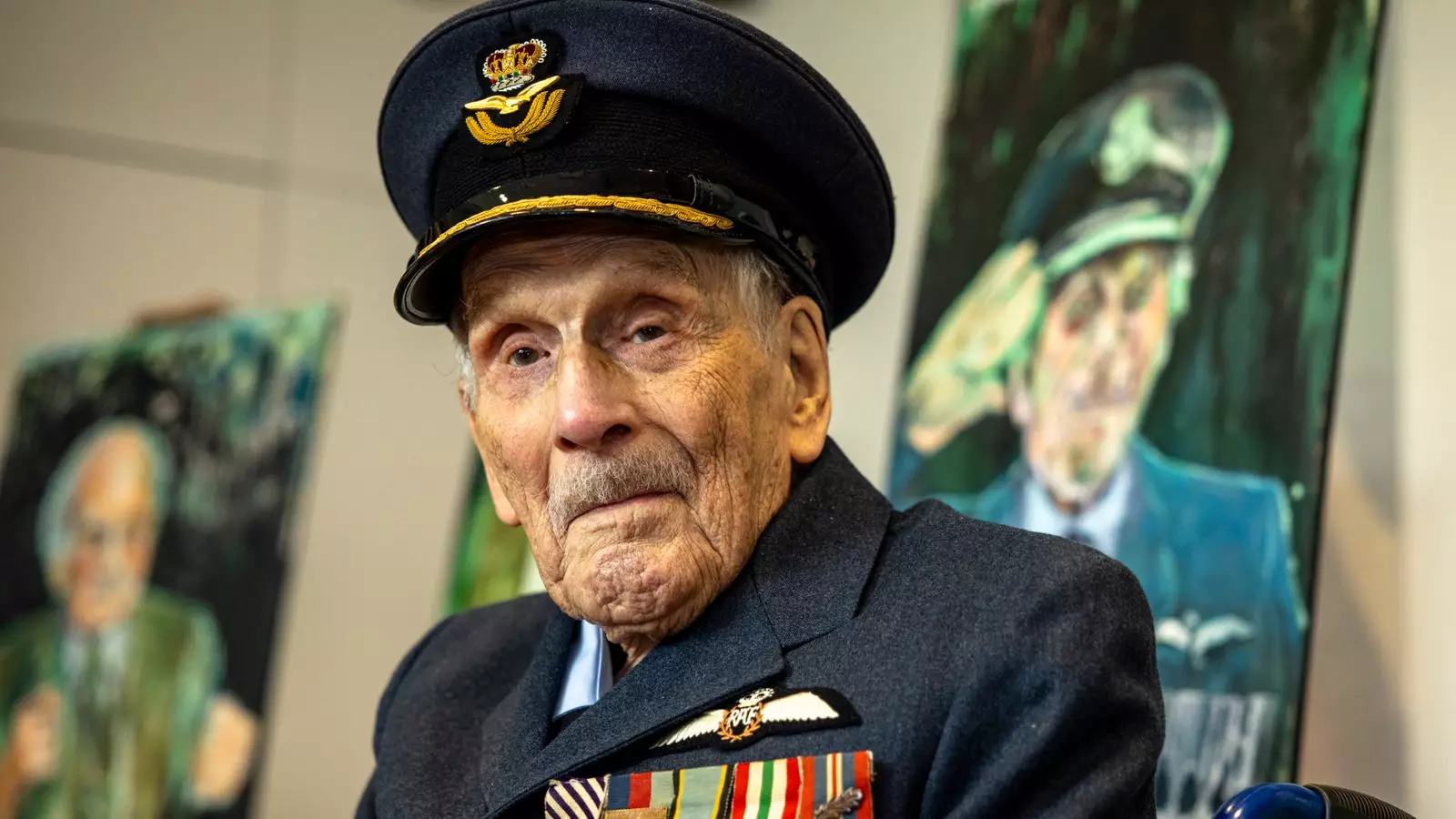The recent death of John ‘Paddy’ Hemingway, the last surviving pilot from the Battle of Britain, marks the end of an era. At 105 years old, he was a living testament to resilience and courage during one of the most perilous times in British history. The news of his passing likely elicited a profound sense of nostalgia among many, a reminder of a time when nations banded together to oppose tyranny. The significance of his contributions cannot be overstated; this was a man who, at only 19, played a pivotal role in the aerial defense against Nazi Germany. It’s disheartening to think that Hemingway’s departure signifies not just the loss of an individual, but the fading memories of a generation that understood the true weight of sacrifice for freedom.
The Weight of Memory
Hemingway was one of the cadre famously referred to as “The Few,” a term immortalized by Sir Winston Churchill in a stirring speech that rallied a nation. When Churchill proclaimed that “never in the field of human conflict was so much owed by so many to so few,” he encapsulated the very ethos of valor embodied by pilots like Hemingway. Their actions during the summer of 1940 forged a powerful narrative of national pride and collective purpose that resonates even today. They faced insurmountable odds and weathered countless challenges, yet they persevered, embodying the spirit of defiance that would ultimately serve as a beacon of hope for the United Kingdom.
No longer can we afford to let their stories dissolve into the echoes of the past. Their experiences are not just historical data points; they constitute a rich tapestry of human emotion—fear, bravery, camaraderie, and loss. As Hemingway’s story re-emerges in the collective consciousness following his passing, it compels us to keep the narratives of such heroes alive in a disposable age. We must honor their legacy less for the sake of nostalgia and more as a means of fostering resilience in contemporary society.
Embodiment of the Spirit of Resilience
Hemingway’s humility is perhaps one of the most poignant aspects of his legacy. He never believed that his actions were anything out of the ordinary; rather, he viewed them as a fulfillment of duty. This stoicism is a reminder that true courage often lies in the ability to confront fear head-on while downplaying one’s own significance in the grander scheme of things. As noted by the Royal Air Force, Hemingway was not only a skilled pilot but also a character filled with charm—marked by that “twinkle in his eyes,” a sign of someone who lived life fully despite the cataclysm swirling around him.
In an age where the concept of ‘duty’ is often perceived as archaic, Hemingway serves as a powerful rebuttal. His life narrative reinforces the belief that commitment to a cause can define and elevate individuals beyond the turmoil that surrounds them. A world too often marred by self-interest and delay could benefit from a collective return to the principles that guided Hemingway and his contemporaries—principles that prioritize duty, integrity, and community over all else.
The Echoes of His Legacy
Public figures like Prime Minister Sir Keir Starmer and Defence Secretary John Healey have aptly highlighted the significance of Hemingway’s contributions, framing them as a crucial part of our collective memory. Their statements serve to remind us that courage is not merely about grand gestures; it is also often found in the silent resolve of those who stand unwavering in the face of adversity. With each passing of these extraordinary individuals, we lose not only personal stories but also the lessons they imparted: the understanding that freedom is not a given, but a hard-fought privilege that demands constant vigilance.
Hemingway’s life serves as a reminder to the current generation of the sacrifices made in the name of liberty. In moments of turmoil, whether they be political or social, we must look back to figures such as Hemingway, who exemplified what it means to stand firm in one’s beliefs. As he takes his leave from this world, one can only hope that we remember to honor his legacy not only through reverence but by living our own lives with the same spirit of integrity and courage that he so effortlessly embodied.

